International
Venezuela’s opposition announces presidential primaries for 2023
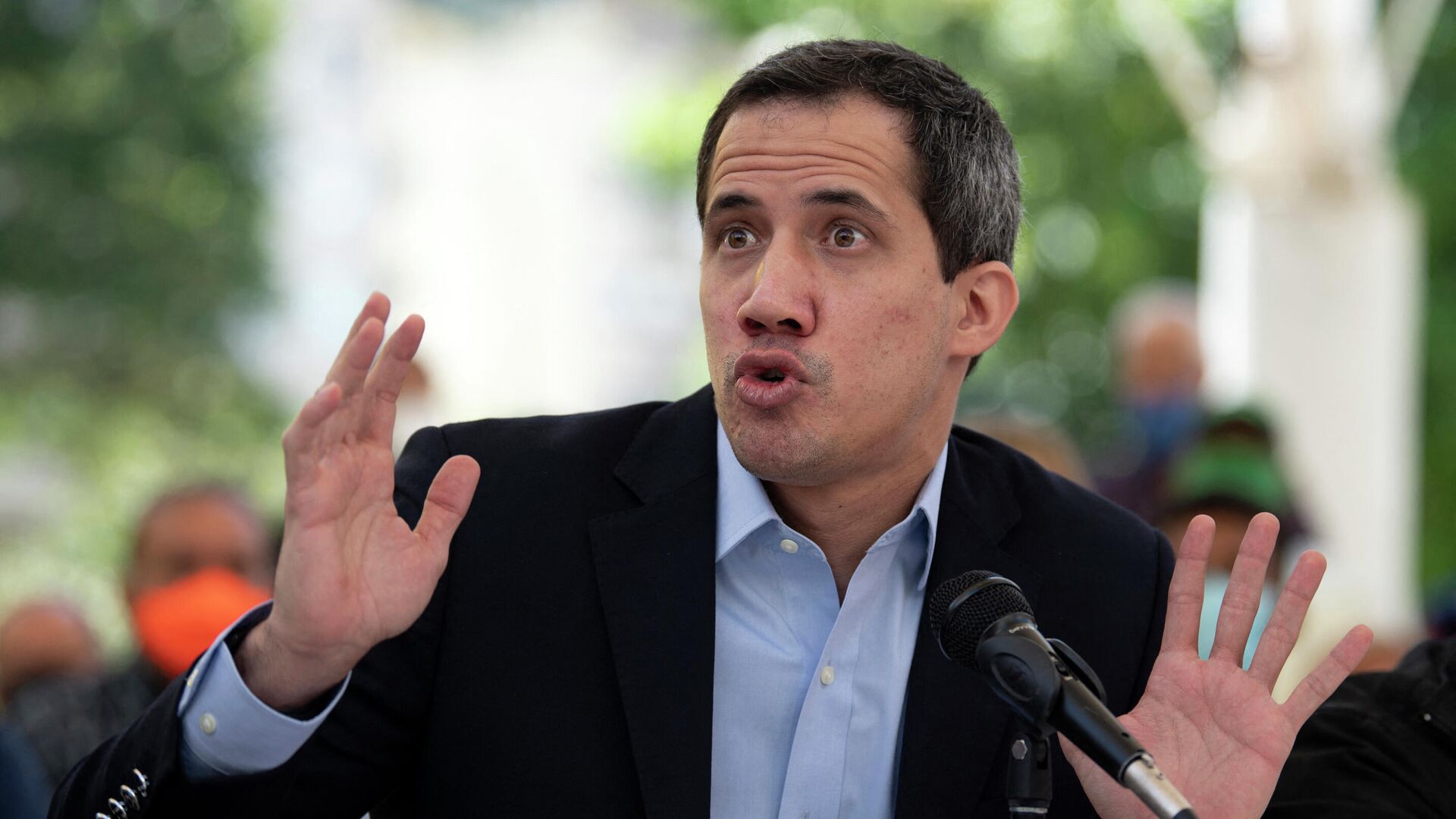
AFP
Venezuela’s main opposition on Monday announced primaries in 2023 to elect a single candidate to stand against incumbent Nicolas Maduro in the country’s next presidential election.
The opposition last held primaries in 2012 when candidate Henrique Capriles romped to victory before he was beaten by the late Hugo Chavez in the presidential election.
Following Chavez’s death, Capriles stood again as opposition candidate the next year against Maduro. However, the opposition boycotted the last elections in 2018.
“The presidential candidate of the democratic forces will be elected by a broad and plural primary process that will take place in 2023,” the main opposition parties said in a statement.
The presidential election is scheduled for 2024, six years after Maduro won a second successive term in the largely boycotted 2018 vote.
Dozens of countries, led by the European Union and United States, joined the opposition in rejecting the result of the election and accusing Maduro of fraud.
That rejection led to opposition leader Juan Guaido in January 2019 using his position as assembly speaker to declare himself acting president, quickly garnering the support of almost 60 countries.
However, Maduro has crucially kept control of Venezuela’s institutions, including the influential military.
A source has said Guaido has not ruled out running in the primaries.
“As Venezuelans, we need a presidential election,” Guaido tweeted, saying such a vote could mean “the end of the dictatorship and the return of democracy.”
“We are taking steps to demand a date and conditions for a free and fair election,” he said.
No date has yet been set for the 2024 elections by the top electoral body, which is controlled by Maduro loyalists.
International
Ukraine declares nationwide energy emergency amid russian attacks and extreme cold
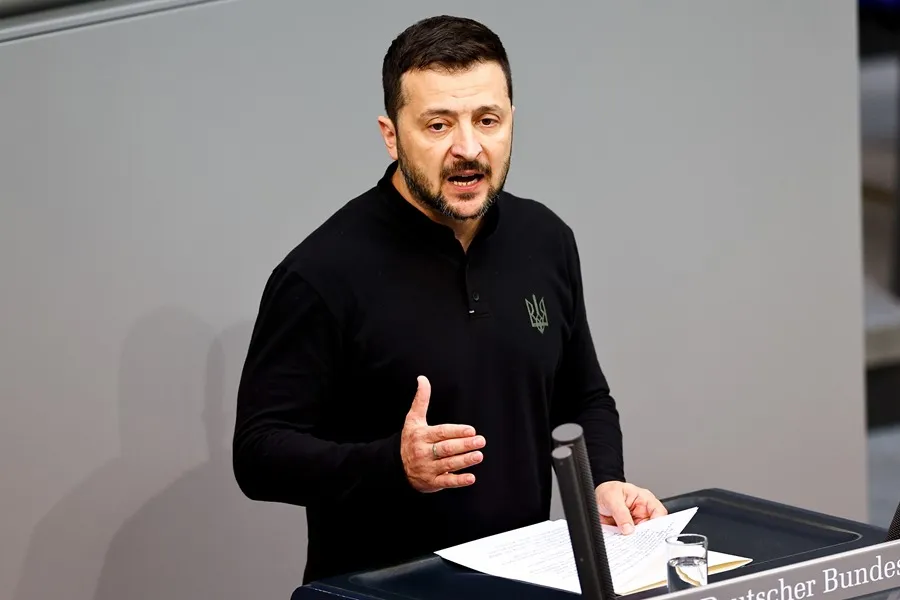
The Ukrainian government on Wednesday declared a nationwide energy state of emergency amid continued Russian military attacks and extreme winter weather, with nighttime temperatures dropping as low as minus 18 degrees Celsius.
“The consequences of Russian attacks and worsening weather conditions are severe (…) Overall, a state of emergency will be declared for Ukraine’s energy sector,” Ukrainian President Volodymyr Zelensky said in a statement posted on social media following a meeting with senior officials.
Zelensky announced the creation of a “permanent coordination headquarters” to manage the crisis in the capital, Kyiv, and tasked former defence minister and current energy chief Denys Shmyhal with overseeing support efforts for affected individuals and communities, including addressing power outages, heating shortages and other “practical issues.”
“There are many problems that require urgent solutions,” the president said, noting that repair crews, energy companies, municipal services and the State Emergency Service are working “around the clock” to restore electricity supplies. Kyiv has been particularly affected after Russian strikes last Friday disabled key parts of the power grid, as daytime temperatures hover around minus 12 degrees Celsius and plunge to minus 18 at night.
Zelensky added that public authorities will “maximize efforts with partners to obtain the necessary equipment and additional support,” while the government will ensure “maximum deregulation of all processes” to speed up the connection of backup power equipment to the grid. He also confirmed that work is underway to significantly increase electricity imports into Ukraine.
The Ukrainian leader further instructed his Cabinet to review curfew regulations in light of the extreme cold, arguing that citizens must have the greatest possible access to assistance centers, while businesses should be given flexibility to plan their operations according to the state of the energy system.
International
France joins Denmark’s ‘Operation Arctic Resistance’ in Greenland amid U.S. tensions

French President Emmanuel Macron confirmed in the early hours of Thursday (Wednesday afternoon in El Salvador) that France will take part in “Operation Arctic Resistance,” after Denmark announced it would expand its military presence in Greenland amid rising tensions with the United States over Washington’s stated ambitions regarding the semi-autonomous territory.
“At Denmark’s request, I have decided that France will participate in the joint exercises organized by Denmark in Greenland, ‘Operation Arctic Resistance,’” Macron said in a brief message posted on social media at 5:18 p.m.
The French president added that “the first French military elements are already on their way, with others to follow,” though he did not specify the number of troops being deployed or the scale of France’s planned contribution.
The governments of Sweden, Norway and Germany have also confirmed the deployment of military contingents to Greenland. Germany’s armed forces will send a 13-member reconnaissance team to the Greenlandic capital, Nuuk, to take part in a mission scheduled to run from Thursday through Saturday, according to the German Ministry of Defence.
Denmark’s announcement came shortly before a Danish delegation met at the White House with U.S. Vice President JD Vance and Secretary of State Marco Rubio to discuss Washington’s plans regarding Greenland. Copenhagen said the military activities would be carried out “in close cooperation with NATO allies.”
International
Iran closes airspace amid U.S. threats and deadly nationwide protests
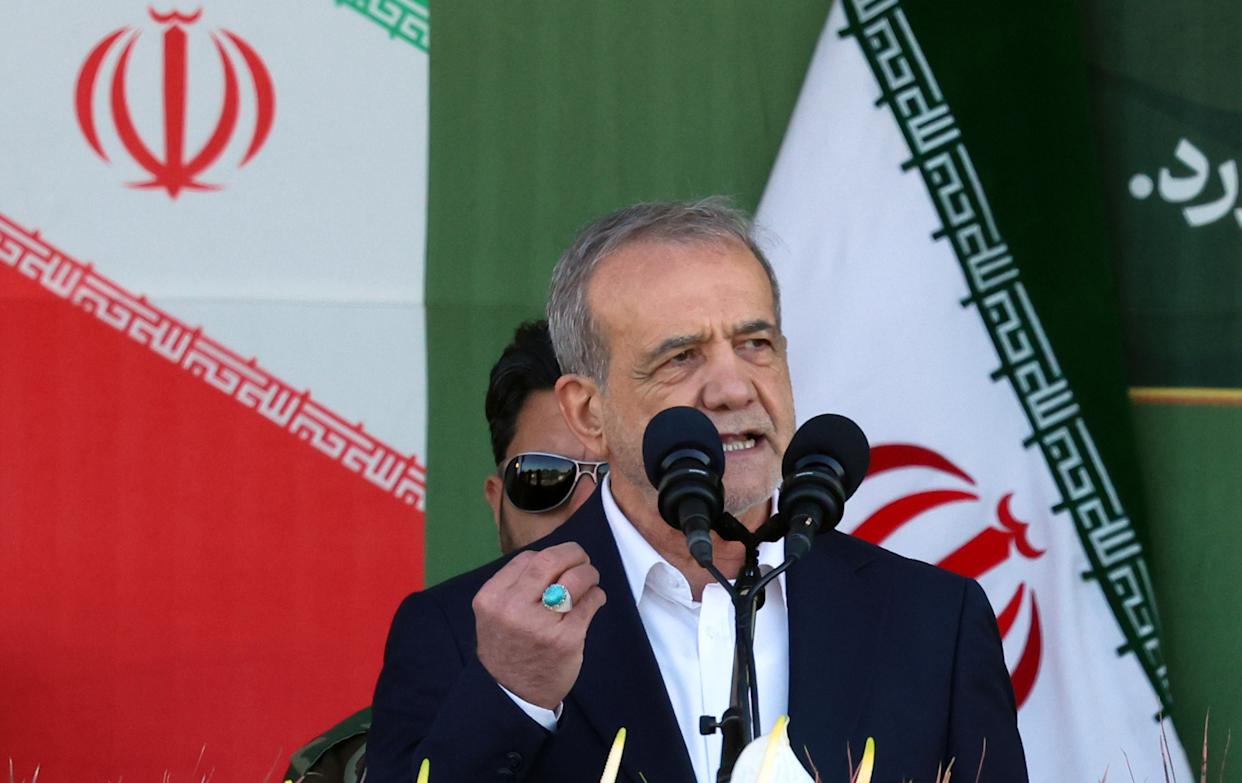
Iranian authorities closed the country’s airspace in the early hours of Thursday, according to data from flight-tracking website FlightRadar24, amid growing threats of a possible U.S. attack as protests across the country continue and have reportedly left thousands dead.
According to FlightRadar24, the Iranian government suspended all flights to and from the country, except for international flights that have received special authorization. The notice was initially issued for a duration of just over two hours.
The move comes after U.S. President Donald Trump in recent days threatened to strike Iran if its security forces failed to halt the deaths linked to weeks-long protests that began in Tehran and later spread to other Iranian cities. Despite the threats, the White House said diplomacy remains Trump’s preferred option.
Speaking from the Oval Office on Wednesday, Trump claimed that “the deaths in Iran have stopped” and said there would be no executions of protesters following his warnings to Tehran. He added that his administration would seek to verify those claims.
“I’ve been told the deaths in Iran are stopping. They’ve stopped, and that there are no plans for executions,” Trump told reporters, cautioning that the United States would be “very upset” if those assurances proved to be untrue.
The statements contrast with reports from rights groups. The Norway-based NGO Iran Human Rights (IHRNGO) said on Wednesday that more than 3,400 people have been killed since the protests erupted. Meanwhile, Kurdish-Iranian rights group Hengaw reported this week that a 26-year-old Iranian man, Erfan Soltani, was facing execution as of Wednesday.
-

 International3 days ago
International3 days agoDeadly van accident near Brazil border leaves 11 dead in Bolivia
-

 Central America3 days ago
Central America3 days agoU.S. and El Salvador maintain close partnership, embassy says
-

 International3 days ago
International3 days agoU.S. to host Danish and Greenlandic Foreign Ministers at the White House
-
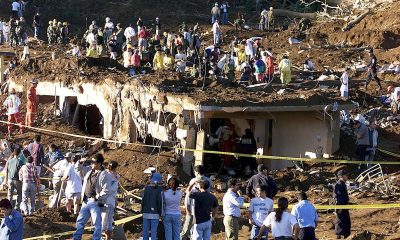
 Central America3 days ago
Central America3 days agoTaiwan’s $10 million donation after 2001 earthquakes allegedly diverted in El Salvador
-
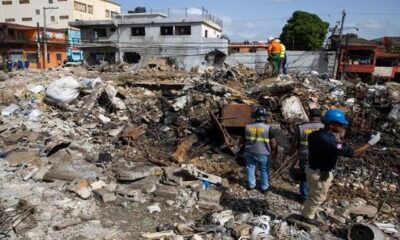
 International3 days ago
International3 days agoDominican court postpones hearing in deadly nightclub collapse case
-

 International3 days ago
International3 days agoPolice hunt gunmen after fatal shooting in Corsica
-
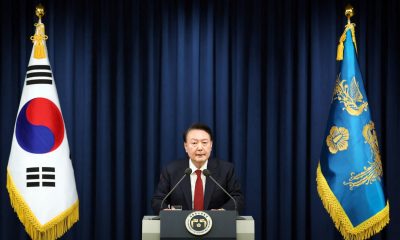
 International3 days ago
International3 days agoEx-President accused of bid to establish dictatorship as verdict nears in South Korea
-

 International3 days ago
International3 days agoVenezuelan opposition leader dedicates Nobel Prize to Trump
-
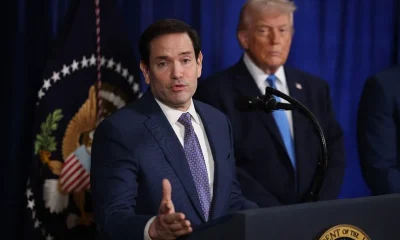
 International5 days ago
International5 days agoU.S. Issues Urgent Evacuation Call for Citizens in Venezuela
-
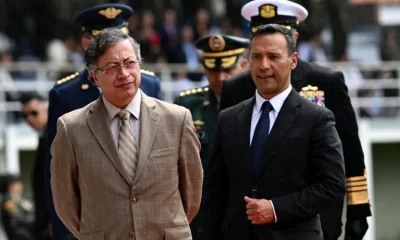
 International2 days ago
International2 days agoColombian Defense Chief Meets U.S. Officials to Advance Bilateral Narcotics Strategy
-
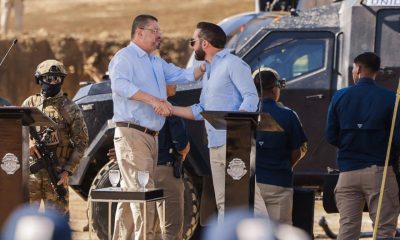
 Central America2 days ago
Central America2 days agoBukele warns crime can become a ‘parallel government’ during visit to Costa Rica
-
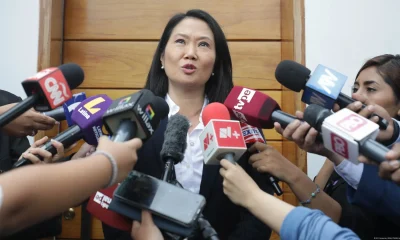
 International2 days ago
International2 days agoPeruvian Court Orders Definitive Dismissal of Money Laundering Case Against Keiko Fujimori
-

 International2 days ago
International2 days agoU.S. to suspend visa processing for applicants from 75 countries
-

 International1 day ago
International1 day agoUkraine declares nationwide energy emergency amid russian attacks and extreme cold
-

 International1 day ago
International1 day agoIran closes airspace amid U.S. threats and deadly nationwide protests
-
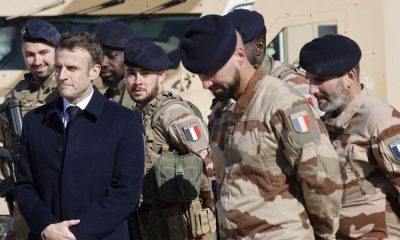
 International1 day ago
International1 day agoFrance joins Denmark’s ‘Operation Arctic Resistance’ in Greenland amid U.S. tensions
-
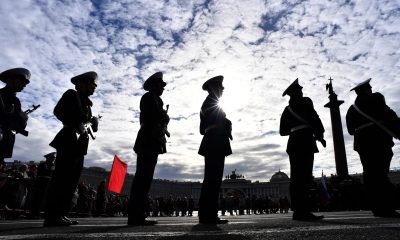
 International1 day ago
International1 day agoUK Intelligence estimates russian casualties in Ukraine at over 1.2 million
-

 International1 day ago
International1 day agoU.S.–Denmark tensions escalate as Trump pushes NATO to back U.S. claim on Greenland
-

 International1 day ago
International1 day agoX moves to block Grok from creating sexualized images of real people amid legal scrutiny
-
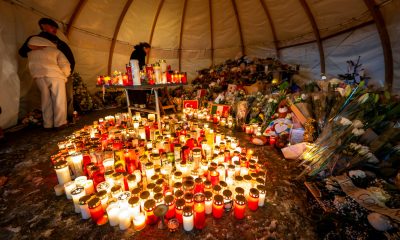
 International1 day ago
International1 day agoSwiss Canton of Valais Grants Emergency Aid to Victims of Crans-Montana Bar Tragedy
-

 International1 day ago
International1 day agoHillary Clinton skips Epstein inquiry as house panel threatens contempt charges


























